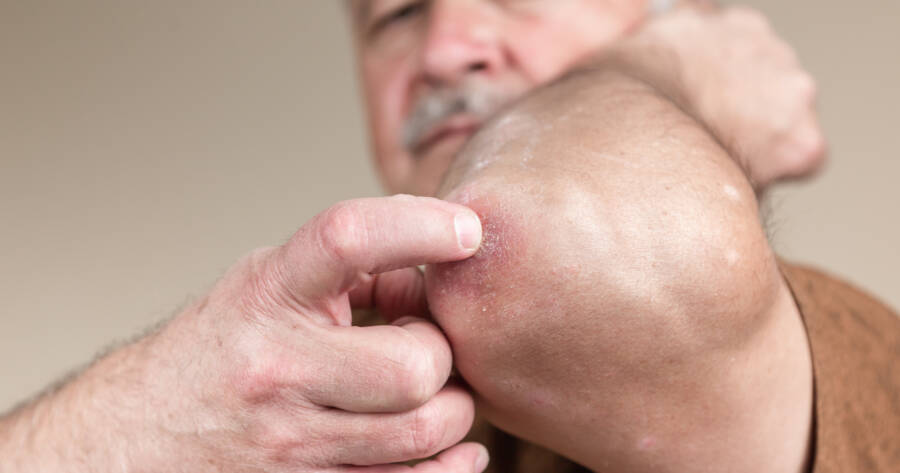According to the National Psoriasis Foundation, approximately 8 million people in the United States have psoriasis, and up to 30 percent of them have plaque psoriasis, making it the most common form of psoriasis.1There are many suspected causes to keep in mind, so select one of the below options to find the most important ones that people don’t know about.
Understanding Plaque Psoriasis
Plaque psoriasis is a chronic condition that causes flaky, itchy, and irritated skin. Despite its prevalence, many individuals remain unaware of its causes and triggers.
This skin condition occurs when your immune system misfires, causing your skin cells to grow too fast. The result? Red, scaly patches on your skin, often itchy or painful. Fortunately, you can learn why these misfires happen with an online search right now.
The Cause of Plaque Psoriasis
The exact cause of plaque psoriasis remains unclear. However, doctors believe it involves both genetics and environmental factors. If you have a family member with the condition, your chances of developing it are higher. Certain triggers, like stress, smoking, or an infection, can also cause psoriasis to flare up.
However, more research is needed to fully understand these triggers and their relationship with plaque psoriasis. Studies on genetic factors may help us find a cure or more effective treatments. Environmental research might give us better advice on how to avoid or manage flare-ups.
Plaque Psoriasis Signs and Treatment
Red, scaly patches can appear anywhere but are most often found on the knees, elbows, lower back, and scalp. Other symptoms can include itching, burning, or soreness around the patches.
As for treatment, it varies from person to person. Some people may find relief with topical creams, while others might require light therapy or medication.2 Some patients even find that changes in their diet or lifestyle help control their symptoms.
Yet, research in this area is ongoing. Understanding the signs and figuring out the best treatment can be tricky, as plaque psoriasis affects people differently. Further studies could help doctors create more personalized treatment plans, giving patients the best chance at managing their condition effectively.
Learn More About Plaque Psoriasis
Understanding the causes and treatments of plaque psoriasis can make a big difference in managing this skin condition. Research plays a vital role in this process, leading to more effective treatments and, hopefully, a cure one day.
So, keep exploring, keep learning, and remember: you’re not alone in this journey. Every bit of information you find brings us one step closer to a world where plaque psoriasis is just a footnote in medical history.





